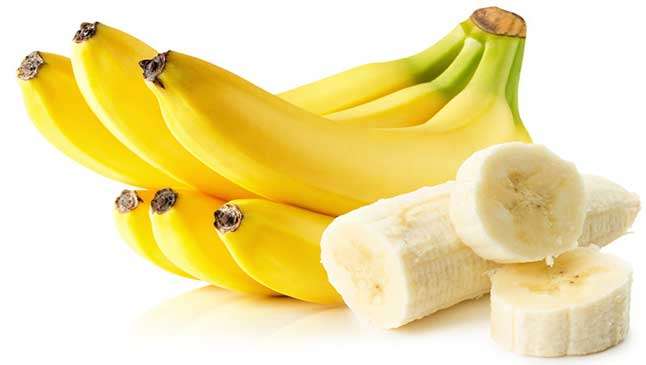Hey there! If you’re reading this, chances are you’ve experienced those annoying digestive issues at one point or another. Bloating, indigestion, and stomach discomfort? Yep, we’ve all been there. But don’t fret! I’m here to help you find relief with some simple dietary tweaks.
Common Digestive Problems in the USA
Digestive problems are pretty common in the United States. In fact, they affect millions of people each year. It’s not just about an occasional upset stomach after indulging in your favorite fast food. We’re talking about chronic issues like acid reflux, irritable bowel syndrome (IBS), and constipation.
Key factors contributing to digestive issues:
- Dietary choices: What you eat plays a significant role in your digestive health.
- Lifestyle: Stress and a lack of physical activity can exacerbate problems.
- Overeating: Going for that extra slice of pizza can lead to discomfort.
Understanding the Digestive Process
Before we dive into the foods that can help, let’s take a quick look at how digestion works. It’s like a well-orchestrated concert that takes place in your gut. Your stomach, pancreas, and intestines all have their roles to play.
Stomach’s Acidic Dance
Your stomach churns food, breaking it down with powerful stomach acid. Sometimes, when you eat too quickly or consume a lot of fatty or spicy foods, the acid can splash back into your esophagus, causing that fiery feeling known as heartburn.
The Small Intestine’s Nutrient Absorption
Once your stomach has done its job, the partially digested food moves into the small intestine, where your body absorbs essential nutrients. If your diet lacks fiber or hydration, this part of the process can get sluggish, leading to constipation.
Colon’s Role in Elimination
Last but not least, the colon’s job is to eliminate waste. When it’s not functioning correctly, you might experience bloating or irregular bowel movements.
Read More: The 7-Day Clean Eating Challenge: Get Started Now!
Foods for Quick Digestion Relief
Now, let’s get to the good stuff – the foods that can help you find quick digestion relief. Remember, these aren’t just foods; they’re your digestive superheroes!
Fiber-Rich Foods
Benefits of fiber for digestion:
- Bulk and softness: Fiber adds bulk and softness to your stool, making it easier to pass.
- Constipation prevention: It keeps things moving smoothly through your intestines.
Top Fiber-Rich Foods:
- Beans and lentils: These little legumes are packed with fiber.
- Whole grains: Opt for whole wheat, oats, and brown rice.
- Fruits and vegetables: Apples, pears, broccoli, and carrots are excellent choices.
Personal anecdote: When my grandma had digestion issues, she used to say, “An apple a day keeps constipation away!” And she was onto something!
Read More: Is Chicken Adobo Healthy? Exploring the Nutritional Benefits
Probiotic-Rich Foods
The importance of gut microbiota:
- A healthy gut is teeming with friendly bacteria that aid digestion.
- Stress, antibiotics, and a poor diet can upset this delicate balance.
Best Probiotic Foods:
- Yogurt: Look for plain yogurt with live cultures.
- Kefir: A fermented milk drink that’s both delicious and gut-friendly.
- Sauerkraut: A tangy and crunchy source of probiotics.
Personal anecdote: My friend swears by kefir. She says it’s like a spa day for her gut!
Anti-Inflammatory Foods
How inflammation affects digestion:
- Inflammation can irritate your digestive tract, leading to discomfort.
- Chronic inflammation is linked to digestive disorders like Crohn’s disease.
Foods to reduce inflammation and soothe the gut:
- Fatty fish: Salmon, mackerel, and sardines are packed with omega-3 fatty acids.
- Ginger: This root has anti-inflammatory properties and can ease nausea.
- Turmeric: A spice known for its anti-inflammatory curcumin compound.
Personal anecdote: Whenever I have a spicy meal that doesn’t sit well, a warm cup of ginger tea really does the trick!
Read More: Bringing the Beach to Your Home: The Benefits of Indoor Tanning Beds
Hydration and Water-Rich Foods
The role of hydration in digestion:
- Water helps soften stool, preventing constipation.
- Dehydration can slow down the entire digestive process.
Foods high in water content for digestive comfort:
- Cucumbers: They’re about 96% water!
- Watermelon: As the name suggests, it’s water-rich and delicious.
- Celery: A crunchy and hydrating snack.
Personal anecdote: During a hot summer day, a slice of juicy watermelon can work wonders for both your hydration and digestion.
Meal Planning Tips for Digestive Relief
It’s not just about what you eat; it’s how you eat it. Here are some simple meal planning tips to keep your digestive system happy.
Balancing Your Diet
Portion control and moderation:
- Avoid going back for seconds if you’re already full.
- Listen to your body’s hunger cues, and stop eating when satisfied.
Combining foods for optimal digestion:
- Try pairing fiber-rich foods with lean proteins for balanced meals.
- Avoid combining high-fat and high-sugar foods in one sitting.
Eating Mindfully
Slow and chew your food:
- Eating too quickly can lead to swallowing air and bloating.
- Chew your food thoroughly to aid digestion.
Avoiding overeating and indigestion:
- Pay attention to portion sizes when dining out.
- It’s okay to leave a little food on your plate if you’re full.
Keeping a Food Journal
Tracking triggers and allergies:
- Note any foods that consistently lead to digestive discomfort.
- This can help identify potential food intolerances.
Identifying foods that cause discomfort:
- Some people may be sensitive to dairy, gluten, or specific vegetables.
- Elimination diets can help pinpoint problematic foods.
Read More: HIIT Workouts Burn Fat Fast: Your Pathway to a Leaner, Stronger You!
Lifestyle Changes for Better Digestion
Diet is essential, but it’s not the only piece of the puzzle. Your lifestyle matters too!
The Role of Physical Activity
Exercise and digestive health:
- Regular physical activity can promote regular bowel movements.
- Aim for at least 30 minutes of moderate exercise most days.
Recommended activities for digestive relief:
- Walking: A simple stroll after a meal can aid digestion.
- Yoga: Certain yoga poses can target digestive discomfort.
Stress Management Techniques
The gut-brain connection:
- Stress can impact your digestive system and lead to discomfort.
- Practicing relaxation techniques can help soothe your gut.
Strategies for reducing stress and anxiety:
- Deep breathing exercises: Inhale slowly for a count of four, exhale for a count of four.
- Mindfulness meditation: Focus on the present moment to reduce stress.
Seeking Professional Help
If your digestive issues persist or worsen, it’s essential to seek help from a healthcare professional, such as a gastroenterologist.
When to consult a gastroenterologist:
- Persistent or severe digestive symptoms.
- Blood in stool, unexplained weight loss, or family history of digestive diseases.
Diagnostic procedures and tests:
- Endoscopy and colonoscopy to visualize the digestive tract.
- Breath tests to detect certain digestive disorders.
Treatment options for chronic digestive conditions:
- Medications for managing symptoms.
- Lifestyle modifications and dietary changes.
- In some cases, surgery may be necessary.
Conclusion
In a nutshell, your diet and lifestyle have a significant impact on your digestive health. By incorporating fiber-rich foods, probiotics, anti-inflammatory choices, and staying hydrated, you can find quick relief from digestive discomfort. Remember to eat mindfully, stay active, manage stress, and seek professional help if needed. Your gut will thank you for it!
Additional Resources
Recommended Books and Websites:
- “The Mind-Gut Connection” by Emeran Mayer
- National Institute of Diabetes and Digestive and Kidney Diseases
Support Groups and Organizations:
Contact Information for Local Gastroenterologists:
- Ask your primary care physician for a referral.
- Search online directories for gastroenterologists in your area.
Remember, improving your digestion is a journey. Start small, stay consistent, and soon you’ll be on your way to a happier, healthier gut!


